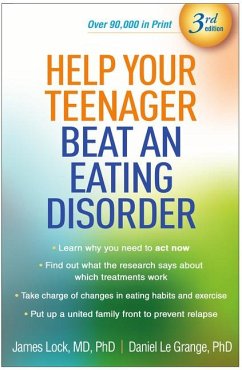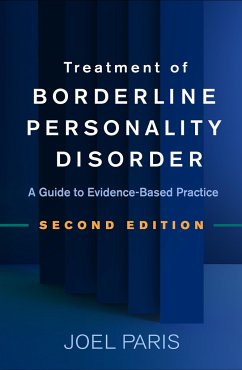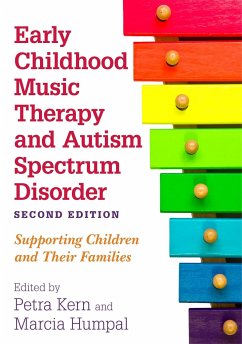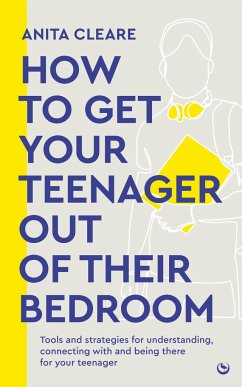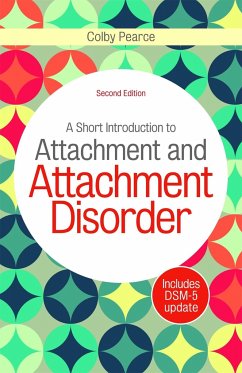Nicht lieferbar
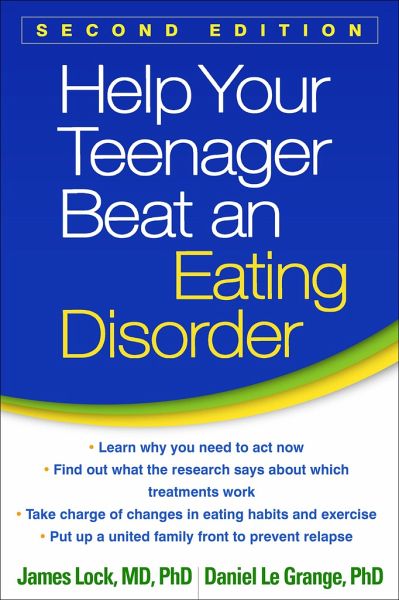
James Lock (United States Stanford University School of Medicine)Daniel Le Grange (San FranciscoThe University of Chicago (Emeritu
Broschiertes Buch
Help Your Teenager Beat an Eating Disorder, Second Edition
Versandkostenfrei!
Nicht lieferbar




Tens of thousands of parents have turned to this compassionate resource for support and practical advice grounded in cutting-edge scientific knowledge. Numerous vivid stories show how to recognize and address anorexia nervosa, bulimia nervosa, and other devastating eating disorders that wreak havoc on teens and their families.
James Lock, MD, PhD, is Professor of Child Psychiatry and Pediatrics at Stanford University and Director of the Stanford Child and Adolescent Eating Disorders Program. Dr. Lock has received numerous awards for his research on eating disorders and has published several books for professionals in collaboration with Daniel Le Grange. He is committed to providing evidence-based treatments to children, adolescents, and their families. Daniel Le Grange, PhD, FAED, is Benioff UCSF Professor in Children's Health in the Department of Psychiatry and UCSF Weill Institute for Neurosciences and Director of the Eating Disorders Program at the University of California, San Francisco. He is Emeritus Professor at the University of Chicago, where he was Director of the Eating Disorders Program until 2014. Dr. Le Grange was a member of the team at the Maudsley Hospital in London that developed family-based treatment for anorexia nervosa. Over his career, he has treated numerous adolescents and families struggling with eating disorders. He is a past recipient of the Leadership Award in Research from the Academy of Eating Disorders and an Early Career Development Award from the National Institute of Mental Health. The author of over 500 articles, books, book chapters, and published abstracts, Dr. Le Grange has published several books for professionals and parents in collaboration with James Lock, including Help Your Teenager Beat an Eating Disorder, Second Edition.
Produktdetails
- Verlag: Guilford Publications
- 2 ed
- Seitenzahl: 310
- Erscheinungstermin: 1. April 2015
- Englisch
- Abmessung: 228mm x 149mm x 25mm
- Gewicht: 348g
- ISBN-13: 9781462517480
- ISBN-10: 146251748X
- Artikelnr.: 40923891
Herstellerkennzeichnung
Libri GmbH
Europaallee 1
36244 Bad Hersfeld
gpsr@libri.de
Für dieses Produkt wurde noch keine Bewertung abgegeben. Wir würden uns sehr freuen, wenn du die erste Bewertung schreibst!
Eine Bewertung schreiben
Eine Bewertung schreiben
Andere Kunden interessierten sich für



